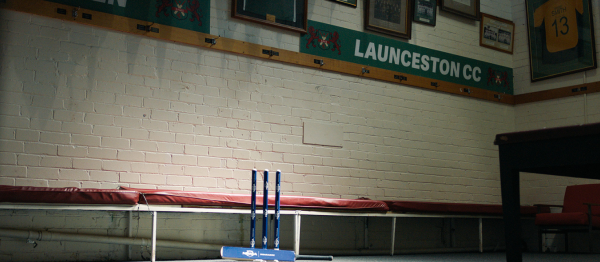30 January 2023
Humans and horses helping each other after loss
When therapist Julie Walker brings Army veterans and first responders into the yard to meet her horses, the animals recognise fellow travellers in trauma. That’s when the Moments of Help begin, here on Kaurna Country, 60km north of the South Australian capital, Adelaide.

“I was badly affected by PTSD,” says police officer Craig, who reluctantly agreed to try out Equine Acceptance Therapy at the urging of his rehab coordinator. She’d been out to Julie and Rob Walker’s property to see the program in action for herself.
“I was very sceptical about horses and therapy,” says Craig. “As a first responder, I’ve had access to therapy and it hasn’t been very effective, unfortunately.”

When the day came, he stepped into the yard with Julie and the horses all came over, “nudging me to be petted”, remembers Craig. “Then Julie asked me to tell her my story and when I do that, I can get quite emotional. I’m in my own little world talking about my flashbacks and nightmares and Julie says, ‘Look where all the horses are’, and they’d scattered. They could sense my stress.”
Julie took Craig through some tools to help him de-escalate his anxiety. Once he was calm, the horses would happily come to him again.
“I was a convert from day one because it showed me how my own anxiety affects those around me,” says Craig.
The horses include Dave, ex trotter Cobber, quarter horse Spotty (“our little Care Bear, he’s the first up for a pat,” says Julie), and Cassie, an old mare. All have themselves suffered various kinds of trauma and now, thanks to Rob’s expertise and care, all gentle giants.

Now they are gentle giants, thanks to Julie’s husband Rob, a professional horseman and farrier, who looks after the mental health of the horses. Using a variety of techniques honed over decades, he finds out what the horses like – and don’t – and helps them to feel safe, comfortable and confident in their new home, and with people.
“Rob makes sure the horses are really happy,” says Julie. “He’s a big guy and when the other guys see how calm, respectful and gentle he is with the horses, there’s a really nice feeling to it.”
My sessions with Julie and the horses helped me learn how to put myself in a good state of mind, reframing how I look at a lot of my traumas, to try to reduce the symptoms.

Julie has a Diploma of Counselling among her many credentials, and she and Rob have owned horses for more than 30 years. “We know how healing horses are,” says Julie, who did her initial counselling training when she was involved in karate.
The couple were inspired to help veterans because their son, Jake, and daughter-in-law, Destinee, served in the Army. “He was good when he came home from Afghanistan, but he was lucky. I knew many veterans were really struggling.”
“Horses bring you into the present and make you accountable and aware of your moods and actions,” she says. “We decided to share these amazing animals with my clients.” The Walkers’ Equine Acceptance program began in 2018. They contacted the Soldier Recovery Centre in nearby Edinburgh. The captain, says Julie, was initially sceptical, just as Craig was.

It can be just as simple as just being outside with these horses that helps.
“He said he thought it was a gimmick, but he sent a busload of guys out to have a look,” she says. “After, he said the guys were happier, more relaxed and more productive, so started sending people out every week.”
Julie says it’s clear that first responders, including police and firefighters, are also looking for a different approach to mental health. The Walkers now offer the program to clients from NDIS, SA Police, the Department of Veterans Affairs, the Australian Defence Force, rehabilitation services and the general public.

While she has female clients, too, Julie says she’s realised how powerful horses are in helping men to open up. “Men learn better when they’re doing things,” she says. “We have an environment that feels safe and comfortable, and not clinical. I was looking for more tools for people with PTSD, not just sitting face to face – the horses take the pressure off. When they are brushing a horse, they start talking.
"As Craig says, “you don’t always have a horse around, of course, and Julie’s a very skilled trauma counsellor”. Today, he has the tools to de-escalate “when I’m not having a good day”.

Many clients return to visit the horses after their therapy has finished – some have volunteered to help Rob train unwanted horses the Walkers have taken in to give them a second chance and find a ‘forever home’.
Both the humans and the horses have lost something – together they can learn a new set of skills and build their confidence back up. It’s about giving the guys and the horses a new purpose – we all need a purpose.
Craig wants to help get the word out to others who’ve suffered trauma and who, like him, might be doubtful. “You get to be around these very large, calming, beautiful animals,” he says. “The fact that they can pick up on your stress is amazing. There’s an incentive for you to de-escalate.” Julie’s not a fan of being in the spotlight, but she wants first responders and veterans to know “we are here to help if they need it”.

The Power of Help is within us all. Communities are stronger together. Share your Moment of Help here or to create your Moment of Help, join the Australian Resilience Corps, as we create the country’s largest army of helpers.



